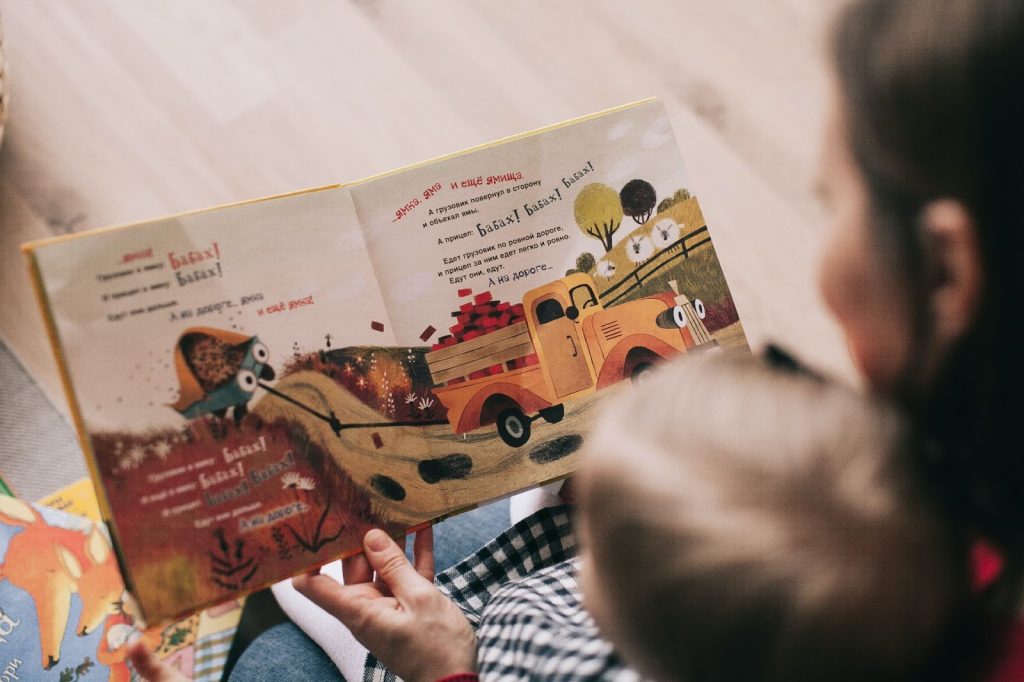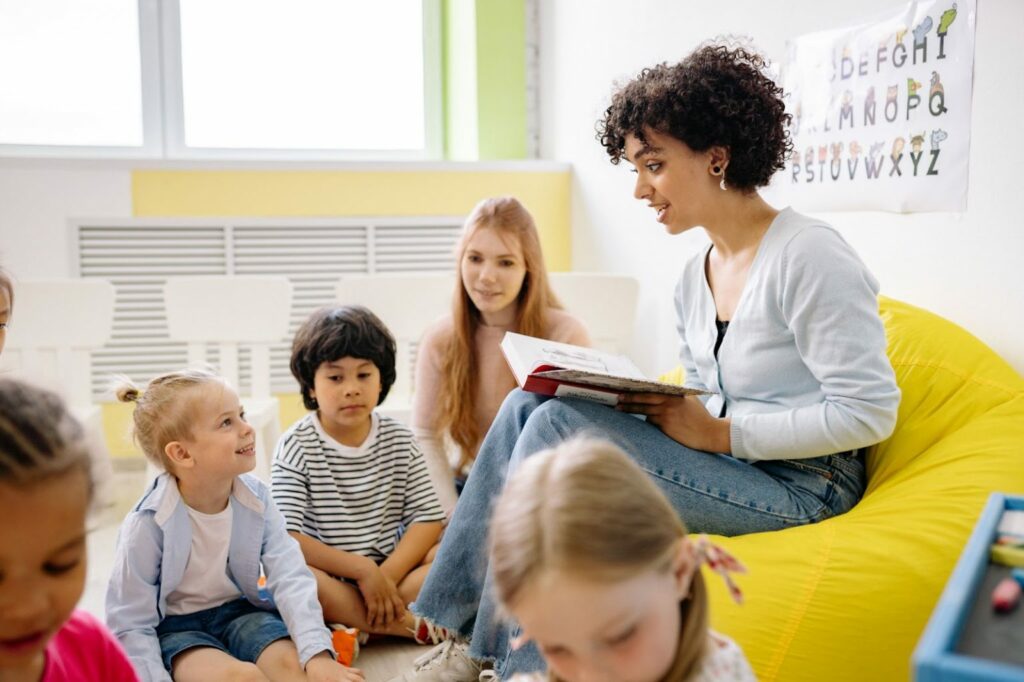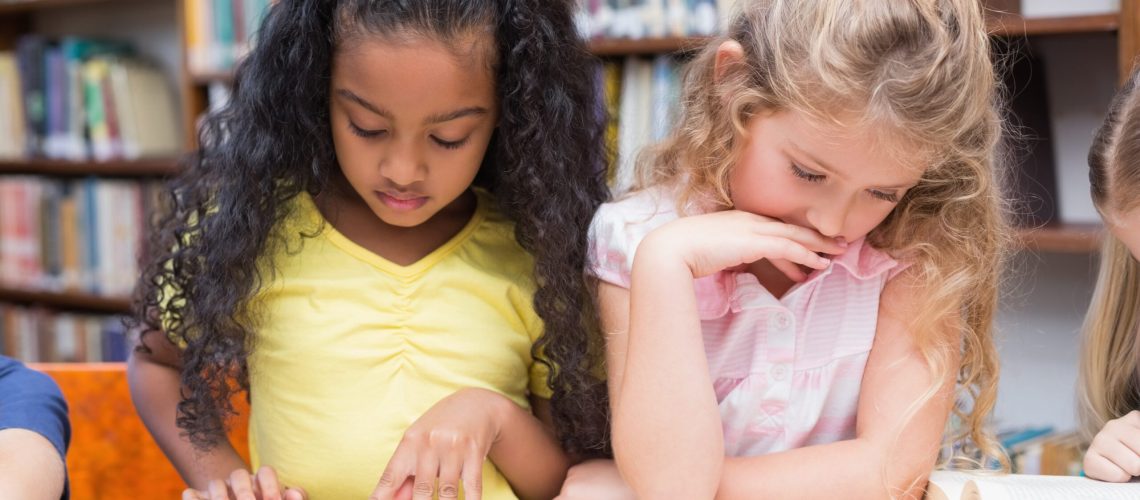
If you wish to introduce your child to the life-changing habit of reading, this article will help you understand the top ten reasons why reading is important for kids, and will help you encourage the practice of reading strongly.
Before we begin, let’s first explore some of the effects of reading on child development.
What Are the Effects of Reading on Child Development?
If you are wondering why reading is important for children, the most important factor to consider is that the act of reading stimulates the child’s brain to be more curious, learn faster and stay active as compared to kids who are not much of a reader. A crucial life skill, reading helps kids to nurture their vocabulary, understand the world around them and guide them in learning through their school years.
From short stories for kids to nursery rhymes, reading is a habit that must be incorporated early into the child’s life through storytelling or reading lines aloud to tune their senses into how vocabulary and pronunciation function and begin the process of cognitive development and mental well-being.
Another important effect of reading on child development is that it helps build confidence and creative skills and fosters improved abilities to perceive the surroundings better. As children are exposed to newer stories or words, it opens a world of possibilities and imagination for them, tapping into their highest potential. Hence, by curating a routine reading practice for them early on, you can witness the amazing effects of reading on your child’s development.
Now, we will understand the impact that stories have on child education to have a broader understanding of the importance of reading:
What is the Importance of Stories in Child Education?
A traditional form of teaching, one of the most important benefits of reading stories is that it helps children have better cognitive skills and encourages them to learn, write and read. This lays a strong foundation for a child’s education, and they are naturally inclined to learn more and perform better in class.
Moreover, storytelling helps them develop a sense of moral and cultural understanding as they learn about different cultures and characters. Do you remember how, as kids, we used to love to stay awake all night just to finish a storybook? This is exactly the kind of excitement children feel as they transcend into the fictional world of characters and geographies. They begin to explore their community and learn how people belong to different races, religions, and cultures. Later on, when they are introduced to different subjects in school, it is familiar to them, as they have a basic understanding.
Storytelling also largely helps boost memory, impacting a child’s educational performance. When you share a story with your kid, you can follow up with simple questions regarding the storyline or the characters. This encourages them to remember the story, enhances their attention span, and significantly fosters memory.
Now that we have a deeper understanding of why reading is important for kids, let’s dive into the major benefits of reading for children.

1. Assisting Cognitive Development
When children listen to stories told to them by their parents or caregivers, thousands of cells in their brains respond at once and get triggered by this experience of hearing the story. Cognitive functioning refers to certain actions performed by the brain, such as critical thinking, reasoning, vocabulary development, intelligence, and so on. The process of reading aloud or enabling children to inculcate the habit of reading helps them make a better sense of what they are seeing, reading, or hearing. Therefore, the more they read, the larger their stock of known words and knowledge of the world around them. They have advanced cognitive capabilities and perceive things better.2. Enhanced language and writing skills
When kids start reading, they unravel newer words and learn synonyms and phrases that enrich their vocabulary largely. It helps them communicate and socialize better, stimulating the part of their brain that can interpret language. This process improves a child’s social skills and literacy immensely, enabling them to become more fluent readers and interpreters. In fact, reading aloud to kids from the time they are three to four years old eases the cognitive development of the child and equips them with the skills to visualize better and have creative capabilities.3. Academic Success
There are several studies that claim that children who are exposed to reading at an early stage have heightened chances of performing better when they reach the phase of proper schooling. This is because reading increases attention span, fosters memory retention capabilities, and stimulates a kid to be curious and creative. These qualities combined together can be rewarding! Therefore, introducing your children to reading or storytelling has long-term academic benefits and helps kids to adopt the five essential reading skills that are imperative for development. These are:- The ability to hear, respond, and play with individual sounds; referred to as phonemic awareness.
- The ability to establish a connection between written language and words that come out of one’s mouth. This is known as Phonics.
- Having a strong vocabulary to be able to communicate or write better.
- The ability to read something and interpret what is written, in other words, being able to comprehend.
- The ability to be orally fluent while speaking a language
4. Nurturing a Special Bond With Your Kid
The importance of reading to children is many, and the most significant of these is the opportunity for parents to create a special bond with their kids. As you indulge in storytelling or reading with your child, you can know about their favorite characters, likes, and dislikes, while you share yours. This is too precious, and you will be able to cherish these moments in your memories for the rest of your life. By incorporating reading sessions with your child into your routine, you create a wonderful learning experience for your kid while nourishing a bond that you can cherish for life.5. Develop Skills Such as Concentration and Learning Discipline
It is no surprise that toddlers have a short attention span and tend to switch from one task to another in minutes. By incorporating a fixed reading session every day with your child, you will be able to induce increased discipline and concentration eventually. You can also try concentration games for kids for enhanced attention. While they may take longer to get used to a regular reading session, after a few days, they will pick up the pack and actively indulge in these reading sessions and nurture newer skills.6. Heightened Sense of Imagination and Creativity
Children are creative and imaginative by nature. By introducing them to newer stories, characters, and fictional worlds, their imaginative power gets boosted and they become highly creative individuals. This directly improves their performance at school, in other aspects, and in life. A foundation that guides you throughout life, the art of reading and storytelling have profound effects on a child’s brain, nurturing their imagination and creativity.7. Acquiring Social Skills and Emotional Development
As children continue to read and improve their cognitive skills, they also develop feelings of empathy which helps them interact with others and react in a certain way in given situations. Storytelling and reading also help children to explore their emotions and how they feel in certain situations. The more they read, the more they learn about themselves and develop improved social skills. Another benefit of reading for students is that it positively impacts their mental health, allowing them to explore the nuances and subtleties of the world around them and enabling them to grow psychologically.8. Develops Capabilities to Comprehend the World Around Them
As kids learn more words and acquire knowledge, the experience of reading equips them to sustain themselves in the world around them. To begin with, they can interpret signs on the road, acknowledge simple directions, and perceive their surroundings soundly. Reading equips them with the skills to understand what is what and how.9. Makes children open to differences and perspectives
As children learn about different cultures, races, and characters from storybooks they become more open-minded and understanding of different races, cultures, and surroundings. This helps them when they start making friends in school and learn about the world and its diversities. Therefore, introducing the habit of reading to children at an early age prepares their conscience to be more accepting and seek reasoning.10. Cultivating a Love for Reading
Reading is the elixir for lifelong learning and lessons, and the importance of reading for kids is diverse. Therefore, by conditioning your child to develop a habit of reading and learning, you can mold their future for the better! Once they cultivate a love for reading, they will never tire of learning more, and who hasn’t benefitted from it?Source: splashlearn


